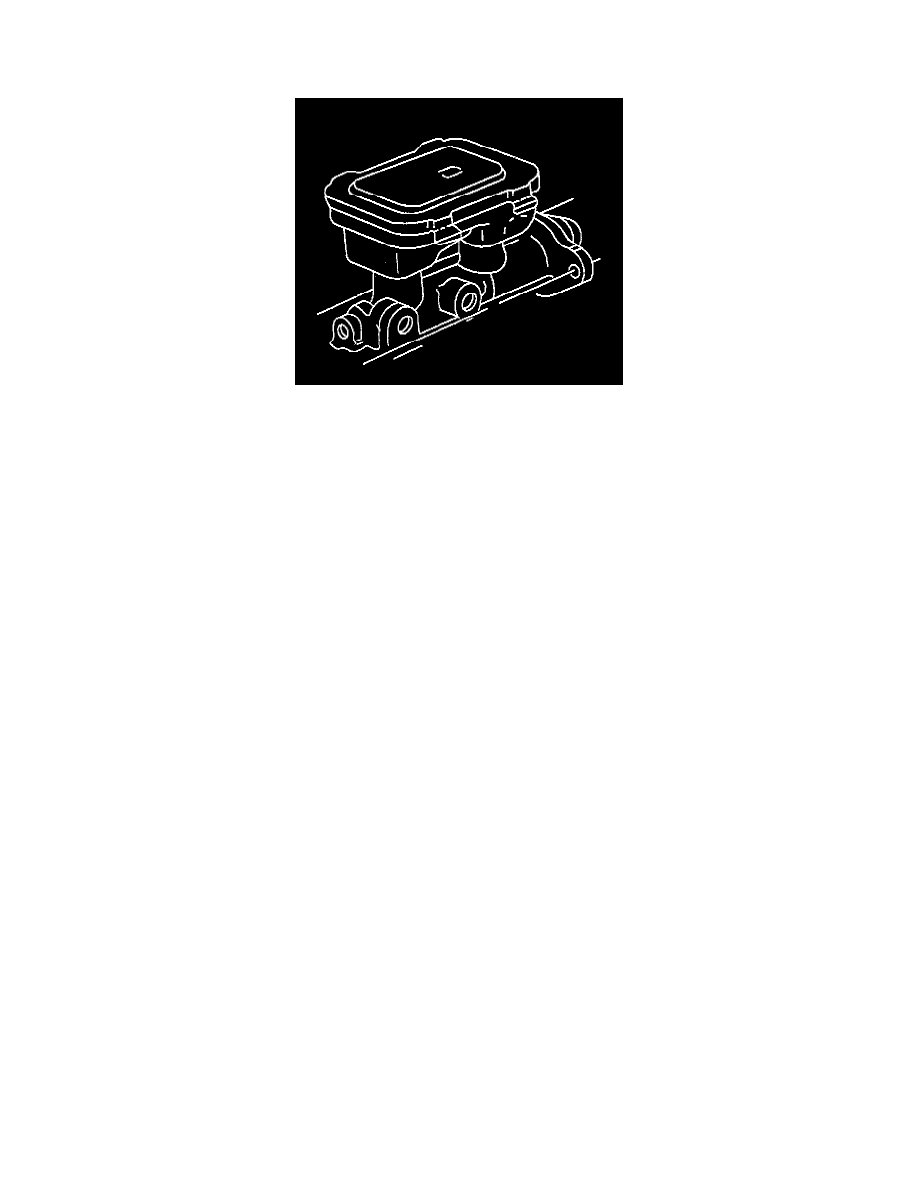S10/T10 P/U 2WD V6-4.3L VIN W (1997)

Brake Master Cylinder: Description and Operation
Without 4 Wheel Disc Brakes
Master Cylinder
The master cylinder is designed for a brake system using low drag calipers. In addition to the standard master cylinder functions, a quick take-up feature
is included in the system. This provides a large volume of low pressure fluid to the wheels with the intitial brake application. This large volume of fluid
overcomes the clearance created by the caliper pistons.
Reservoir and Cover
The reservoir and cover used on these models are made of plastic. The cover snaps onto the top of the reservoir. A seal is located between the cover
and reservoir to keep contaminants out of the brake fluid.
The master cylinder reservoir must be kept properly filled. This ensures adequate reserve fluid and prevents air from entering the hydraulic system.
Fluid expansion due to heat absorbed from the brakes and engine
FLUID AND FLUID HANDLING
CAUTION: Brake fluid may be irritating to skin or eyes. In case of contact, take the following actions:
^
Eye contact - rinse eyes thoroughly with water.
^
Skin contact - wash skin with soap and water.
NOTE: Brake fluid will damage electrical connections and painted surfaces. Use shop cloths, suitable containers and fender covers to prevent brake
fluid from contacting these areas. Always reseal and wipe off brake fluid containers immediately after use to prevent spills. Use Delco Supreme 11 Brake
Fluid GM P/N 1052535 or an equivalent DOT-3 motor vehicle brake fluid. Brake fluid should always be stored in a closed, sealed container. Never use
previously opened containers of stored brake fluid. Always use new fluid from a sealed container. Brake fluid left in an open or improperly sealed
container will absorb moisture. This can lower the fluid's boiling point and result in system contamination, corrosion, or deterioration of rubber
components.
Substandard or Contaminated Fluid
Improper fluid, water, or any other contaminants in the fluid may cause the brake fluid to boil or rubber component deterioration in the hydraulic
system.
Swollen master cylinder piston seals indicate that rubber deterioration has occurred. Rubber deterioration is also indicated by swelling in wheel
cylinder boots, caliper boots, or the master cylinder reservoir diaphragm.
If rubber deterioration is found, replace all rubber parts in the system, including the hoses. Also check for fluid on the brake linings. If any is found,
replace the linings.
If the brake fluid is contaminated and the master cylinder piston seals are satisfactory, check for leaks or excessive heat conditions. If no leaks or
excessive heat conditions are found, flush the system.
